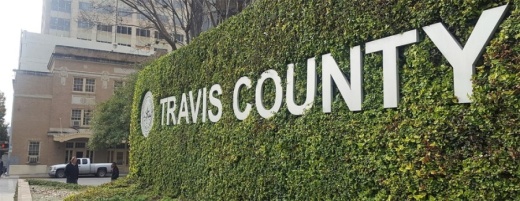To accept the application, commissioners paused a moratorium that had been placed on the Travis County Code Chapter 28 economic development incentives policy. That moratorium was first placed in July 2019 in order to revise the Chapter 28 policy to become more inclusive of smaller businesses, not just large corporations. The revision process is underway and is projected to be completed later this year. In the meantime, Travis County implemented a set of temporary adjustments to its policy based on the city of Austin's correlating policy, called Chapter 380, in regards to the Silicon Silver project.
These adjusted stipulations include a requirement that all jobs created by the Silicon Silver project pay a living wage, defined as at least $15 per hour in Travis County. This includes employees of the company and contract workers, including construction workers. At least 25% of the project’s hires and contract workers must be from Travis County or the surrounding counties of Bastrop, Hays, Caldwell, Williamson and Burnet. All construction activities and hires must also meet the standards of the Travis County Construction Compliance Program, which includes a commitment to invest in independent on-site monitoring. Additionally, the company is prohibited from taking any retaliatory actions toward workers involved in union organizing.
Representatives for the Silicon Silver Project were not present for the vote, but Travis County Judge Andy Brown said the applicant was aware that any deal with the county would include provisions to provide workforce protections.
“In my conversations with them, I’ve always been really up front that labor concerns are paramount to me, and I think they’re aware of that,” Brown said.
Several representatives for local labor protection organizations voiced support for the strengthened labor requirements voted on by the court for this application.
“These are the strongest wage safety and workforce development standards to date that have been proposed at the Travis County Commissioners Court,” said Jessica Wolff, deputy policy director for Worker’s Defense, a community organization that supports protections for laborers, especially immigrant construction workers. “It is our understanding and hope that these will become part of the [revised Chapter 28] policy.”
The Silicon Silver Project marks the second application for which Travis County has lifted its moratorium on Chapter 28 considerations. Tesla was the first; in July 2020, commissioners approved a deal giving Tesla around $13.9 million in tax incentives, contingent upon Tesla’s performance. While Travis County was in negotiations with Tesla, Wolff pushed for more labor protections as part of its agreement with the company.
“I think what our community really needs is not only 5,000 jobs, but 5,000 good, safe jobs,” Wolff told Community Impact Newspaper in July.
In December, commissioners voted through an initial amendment to the Chapter 28 policy to require any draft economic incentives performance agreement to be posted to the county’s website for public review five to seven days before a vote. That change, intended to increase transparency with Chapter 28 considerations, also means that applications will be made public once received, including the name of applicants.
“Our community has made it clear that if you want to do business in Travis County, we expect significant investments that will improve the lives of all who live and work here. This is a step in the right direction to ensure that all future agreements are fair, equitable, transparent, and shaped with the community’s involvement,” Brown said in a statement.





